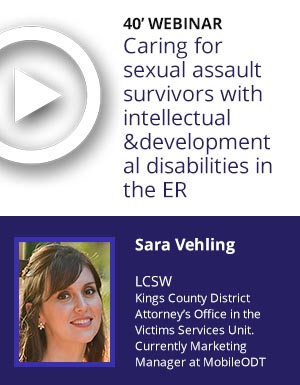
SANE nurses are at high risk of burnout. Long examinations, extended shifts lasting into the late hours of the night, and the significant burden of guiding sexual assault victims through their darkest hours can quickly take its toll. As a SANE, it is vital that you care for your own mental and physical wellbeing in order to care for others. Remember to reserve some of the care and concern you show to your patients, for yourself. Read on to learn about evidence-based strategies for avoiding burnout.
The psychological toll of SANE work
The idea of ‘self-care’ has become a hot topic in pop culture at the moment. Having a bubble bath might sound relaxing enough, but SANEs require more proven methods to maintain mental health and perform their job sufficiently. While a day of pampering might help those working in some professions, nurses who provide sexual assault forensic exams must design their self-care routine based on evidence-backed practices that offer a solid framework of psychological support.
Numerous academic studies have looked into the burdens of providing SANE services. Literature interchangeably refers to burnout, compassion fatigue and secondary traumatic stress disorder in many places. Compassion fatigue and secondary trauma describe the experience of stress resulting from exposure to a traumatized individual. Burnout involves stress caused by physical and mental exhaustion that depletes your ability to cope with your everyday environment.
Researchers have demonstrated what we already knew: that it’s not easy working as a SANE. One study showed that over 50% of SANEs have reported experiencing trauma as a result of treating sexual assault victims. 41% reported having experienced some degree of burnout as a result. Other studies have found numbness, intrusive mental images and avoidance techniques common among SANEs who experience secondary traumatic stress disorder.
Signs of burnout for SANEs
Signs of burnout can be difficult to recognize. Professionals dealing with traumatized individuals want to provide the highest level of care possible with compassion. The drive to help our patients can sometimes lead SANEs to ignore the warning signs of building professional stress, in the name of ‘being there’ for their patients.
Common signs of approaching burnout include:
- Exhaustion
- Anger and irritability
- Alcohol or drug abuse
- Reduced ability to feel sympathy or empathy
- Reduced satisfaction with work
- Increased absenteeism
- Impaired ability to make decisions or care for patients
Solutions to prevent burnout for SANEs
We all have the responsibility for taking care of our own psychological health and preventing ourselves from reaching the point of burnout. Even if you find your duties manageable, your SANE colleagues might have a harder time. Make sure to ‘check in’ with your colleagues to see if they need any additional support.
Knowing how to help others and yourself represents the first step in avoiding burnout. We offer you the following suggestions based on clinical studies for reducing compassion fatigue and burnout among SANEs and other professionals dealing with sexual assault cases:
Peer support
Not feeling alone in a challenging experience can go a long way towards easing the trauma of the experience. For SANEs working in a team, peers provide invaluable support when dealing with victims of sexual assault. Talking through your experience with other SANE professionals who have been through similar experiences can help validate your feelings. They can also suggest stress relieving techniques that have worked for them.
Some programs routinely have check-in sessions at the end of every shift to make sure that all nurses on the team have a set time and place to unload some of the burden.
Management support
Confiding in the boss might seem intimidating in some professional settings. In the case of nurses providing emergency services, it can reduce stress and help prevent compassion fatigue. Increased management support creates a higher level of compassion satisfaction, the opposite of compassion fatigue. Knowing that your SANE program coordinator understands your struggles and provides support can make a significant difference.
Understanding SANE program strategy
The literature indicates that knowing and sharing organizational goals and strategic planning not only empowers SANEs to feel part of the overall program, it also helps on a psychological level. The more access SANEs have to the overall strategic planning information, the easier it is to avoid burnout.
Note, this does not necessarily mean direct involvement in making planning decisions. Simply knowing the plan can have an effect. You could approach your own SANE coordinator and ask to arrange an information sharing session to give SANEs on the ground more understanding of the overall program.
Compassion Fatigue training
There are structured programs help to reduce compassion fatigue. These include both online courses and in-person workshop leaders that can offer face to face training. This manner of formal interaction improves compassion fatigue.
You could suggest that your SANE program coordinators facilitate a workshop session or series for all the nurses in their program. You may also want to organize a session through your local IAFN chapter or attend one at an IAFN conference.
Emotional support from loved ones
Although they are not equipped to offer professional advice, the support of those closest to us can help ease the burden of emotional trauma. Privacy and legal issues may prevent you from disclosing details of a specific case, but letting your loved ones know that you had a difficult case can reaffirm your own personal emotional safety.
Working as a SANE is by no means choosing an easy line of work. However, many strategies can help SANEs continue to do what they do best: caring for those in need, at a significantly vulnerable moment.
We encourage you to follow the routines and habits of sharing to make sure the experiences don’t become overwhelming and lead to a meltdown.
Peer support from SANEs in other areas can also be empowering. This year’s Annual IAFN national meeting became the first ever EVA Community gathering, bringing together EVA users from around the US. Participants swapped stories and shared how they had used the EVA System in their SANE practice.








